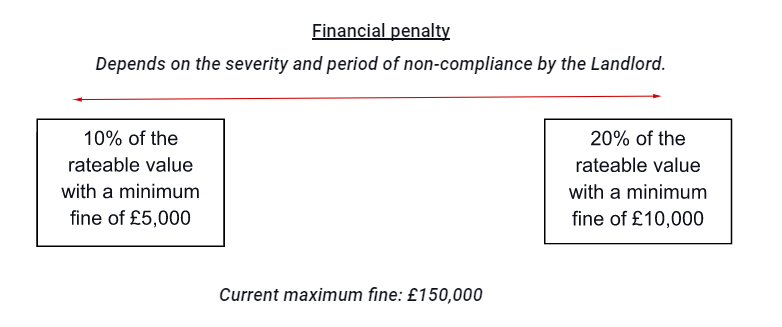Excellent experience start to finish – always very responsive to any queries and the turnaround on the property I was buying was very quick, even in the busy time leading up to stamp duty deadline. Jenny was always very helpful and went above and beyond to close on a short timescale.
How MEES and EPCs are changing in 2023
The Minimum Energy Efficiency Standards (MEES) are tightening in England and Wales on 1 April 2023. The regulations currently require landlords granting a new lease or a lease renewal of a commercial property to hold an energy performance certificate (EPC) with a rating of E or above, unless they have registered a valid exemption. Commercial properties with a lower rating than E are labelled as being sub-standard.
From 1 April 2023, it will become unlawful for landlords to continue to let sub-standard properties unless certain exemptions apply. This extends to leases which the tenant is holding over following the termination of the contractual term.
How do the MEES and EPC changes impact landlords?
If a substandard property is let or continues to be let in breach of MEES regulations, without a valid exemption, the landlord is at risk of the below penalties:
Publication penalty
- Details of the breach were published in the PRS Exemptions Register which is publicly accessible.
- Such publishing will be accessible for a minimum period of 12 months and may be published for a longer period as the enforcement authority may decide.
The publication penalty may be more of a concern to landlords with larger portfolios as the negative publicity will deter tenants, buyers or investors placing ESG at the forefront of their growth stage. However, smaller landlords should consider the effects of the publication penalty in extending the due-diligence process of their sales and re-financing transactions as buyers and lenders scrutinise the publications.
How to prepare for the MEES and EPC April 2023 update
Landlords must act promptly to choose a strategy for their portfolio and devise an action plan with their solicitors and property managers ahead of the looming deadline of the 1st of April 2023.
Here are our strategy suggestions to landlords for the April 2023 MEES and EPC update:
Apply for exemptions
A landlord can continue to let a property that falls short of the MEES regulations without any enforcement action being taken if an exemption applies. The three key exemptions are:
- Lack of consent – the landlord has been unable to obtain consent from a third party to carry out the necessary energy improvement works.
- Seven-year payback test – landlords can demonstrate that the necessary improvement works will not pay for themselves via energy bill savings over seven years.
- Devaluation – this applies if the landlord has obtained a report from a surveyor that the installation of the energy-improving works would reduce the market value of the commercial property.
If any of the exemptions apply, these must be registered on the PRS Exemptions Register and careful note of the expiration dates will need to be taken by the landlord and or their management team as an improvement to the EPC of the property will need to be re-attempted ahead of their expiration.
Sell the property
The MEES regulations do not prohibit the sale of a sub-standard rated property but the issues may cause delays and reductions in valuation.
Buy a property
Purchasers of a substandard property which are subject to existing tenancies will be able to register a six-month exemption. This grace period runs from the date of purchase and will also need to be registered on the PRS Exemptions Register. This exemption also extends to agreements for lease.
Carry out the EPC improvements
Landlords contemplating carrying out the improvement works will need to review their lease provisions for each property to assess whether they can recover the costs back from the tenants and if they have the access rights to re-enter the premises to carry out such works.
Top tip: If the Tenant refuses to provide consent to entry to carry out improvements to the energy performance of a property (and has that power under the terms of their lease) this can satisfy ground A of the exemptions under the regulations.
Do landlords need to act now?
No; just like the climate, environmental legislation is likely to change.
The Government is set to reduce UK greenhouse gas emissions by at least 80%, compared to the 1990 baseline by 2050 under the Climate Change Act 2008. The MEES regulations are set to tighten even further in the years 2027 and 2030.
Davis Blank Furniss is here to help commercial landlords
For impartial expert advice on the best strategy for you, contact our Commercial Property Solicitors. We have solicitors based in Glossop and Manchester who are just a phone call away and ready to help you navigate the MEES and EPC April 2023 updates.
Read some of our other blog posts relevant to the commercial property services that we provide.
Found this article useful? You might be interested in some of our others:


